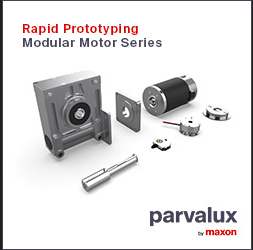A call for better screening
Powder and pellet production processes are often inefficient and highly wasteful, despite effective equipment being available. This is the claim made by materials screening specialist Gough Engineering, who is urging businesses to invest in better screening equipment for powders, pellets, plastics and other irregular granulated products.
Gough Engineering is suggesting businesses in the pharmaceutical, food and renewables sector invest in effective vibratory sieves to improve the quality of throughput. The company, who manufactures a range of conveying, elevating and screening systems, is directing plant managers and engineers to trial its Vibrecon range of vibratory screening equipment.
The Vibrecon range includes models designed to suit the demands of different industries, such as the Vibrecon PS pellet screener in the sorting of pharmaceutical drugs or renewable biofuel pellets. The range also includes the Vibrecon CS classifying screen, which is specially suited for screening polymer powders.
"While the food, pharmaceutical and renewables industries have significantly different production processes, the powdering and pelleting challenges remain the same," explained Stephen Harding, managing director of Gough Engineering. "These processes require uniformity of size, both for effectiveness and safety. In all sectors, effective quality control of particle or component sizes may be achieved by correctly selecting screening machines.
"Traditionally, misshapen pellets or powder granules may end up trapped in the sieving equipment. This increases the volume of unnecessary production waste and, as it accumulates, can lead to blockages that slow the flow of production and ultimately results in downtime.
"Vibratory sieves can avoid this by using more uniform vibrations to minimise screen blinding. The Vibrecon range also features a separate exit point in the side for misshapen products to fall through, which engineers can then collect and process again to address the defects. Plants therefore reduce the amount of product waste in their processing lines."
The issue of screen blinding is a significant one for most industries involved in the production of powder products. As powdered materials are processed through sieving equipment, large granules can block holes and gradually reduce throughput. This is particularly problematic for the food industry, where products such as powdered milk often clump during production to create blockages.
Without the use of vibration to adjust the behaviour of the powder flow, mesh blockages accumulate and require maintenance engineers to temporarily disrupt production to clean the screen. Gough Engineerings vibratory sieves reduce the need for engineer intervention, keeping production running as normal. Any maintenance required is streamlined due to the Vibrecons quick release clamps and ease of installation.
Gough Engineering also provides a range of ultrasonic screening equipment that can effectively prevent screen blinding from occurring. This equipment uses high-frequency vibrations to shake powder during the screening process, significantly reducing the likelihood of powders forming blockages and providing a consistent rate of throughput.
Engineers can also call on Gough Engineerings service engineers for maintenance help. The company provides sieve maintenance and support service to help with everything from sieve re-meshing to general equipment maintenance.
Gough Engineerings Vibrecon equipment is available in a range of sizes to suit the needs of a variety of production lines. The company urges businesses to trial the Vibrecon to not only see its impact on throughput and quality, but also to determine the best size for their needs.
For more information on Gough Engineerings range of vibratory sieves, or to arrange a trial of the Vibrecon, contact the company on +44 (0) 1782 567 777 or by visiting the company website.
Featured Product

